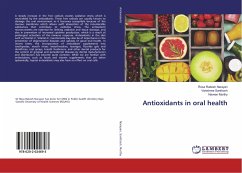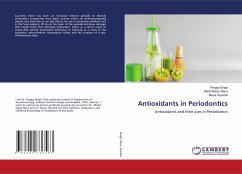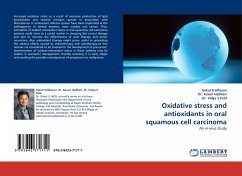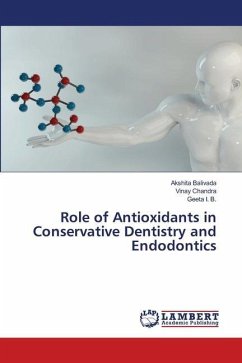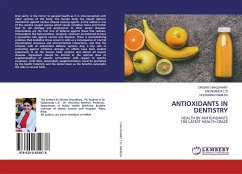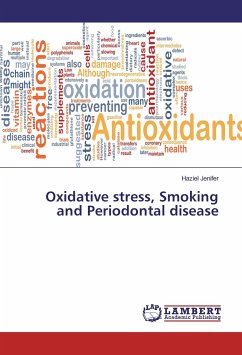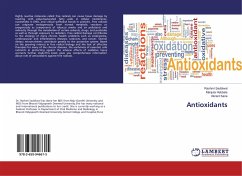
Antioxidants
Versandkostenfrei!
Versandfertig in 6-10 Tagen
33,99 €
inkl. MwSt.

PAYBACK Punkte
17 °P sammeln!
Highly reactive molecules called free radicals can cause tissue damage by reacting with polyunsaturated fatty acids in cellular membranes, nucleotides in DNA, and critical sulfhydryl bonds in proteins. Free radicals can originate endogenously from normal metabolic reactions or exogenously as components of tobacco smoke and air pollutants and indirectly through the metabolism of certain solvents, drugs, and pesticides as well as through exposure to radiation. Free radical damage contributes to the etiology of many chronic health problems such as emphysema, cardiovascular and inflammatory diseas...
Highly reactive molecules called free radicals can cause tissue damage by reacting with polyunsaturated fatty acids in cellular membranes, nucleotides in DNA, and critical sulfhydryl bonds in proteins. Free radicals can originate endogenously from normal metabolic reactions or exogenously as components of tobacco smoke and air pollutants and indirectly through the metabolism of certain solvents, drugs, and pesticides as well as through exposure to radiation. Free radical damage contributes to the etiology of many chronic health problems such as emphysema, cardiovascular and inflammatory diseases, cataracts, and cancer. Several dietary micronutrients contribute greatly to the protective system. Based on the growing interest in free radical biology and the lack of effective therapies for many of the chronic diseases, the usefulness of essential, safe nutrients in protecting against the adverse effects of oxidative injury warrants further study.This book gives you comprehensive information about role of antioxidants against free radicals.




